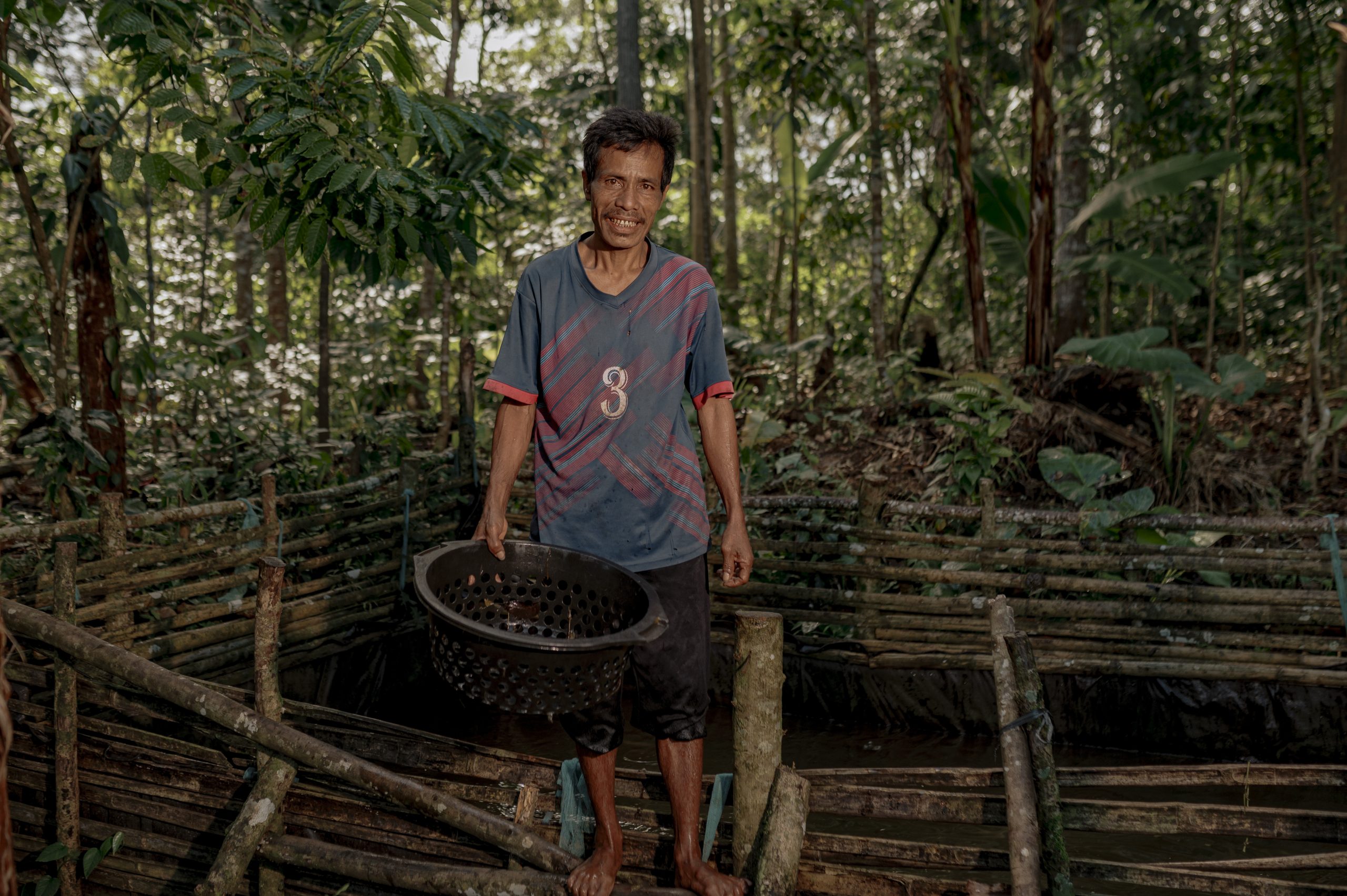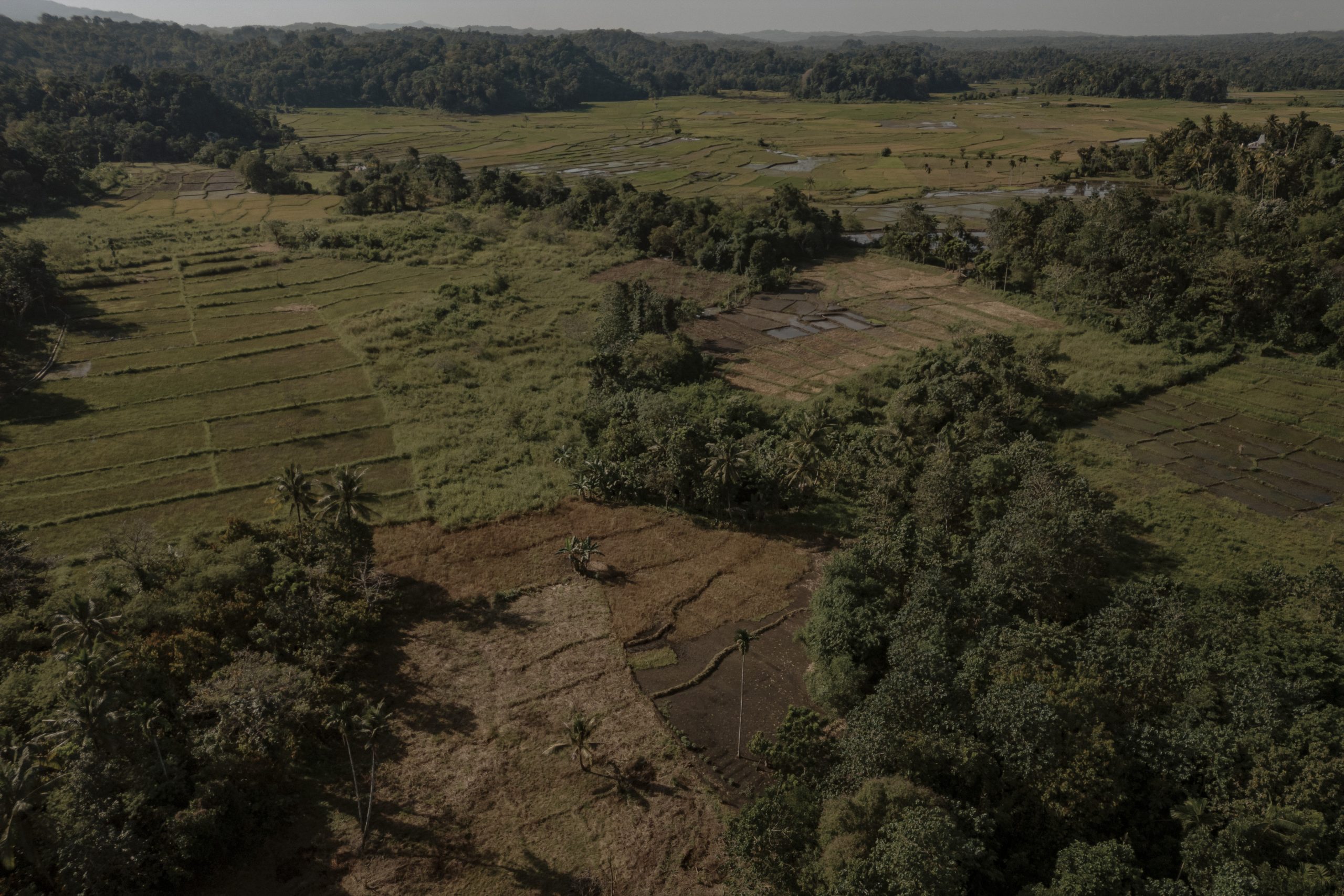
Mata Kapore is a village with cool temperature in Southwest Sumba, surrounded by trees, clear rivers, and rice fields. On an afternoon in mid-May 2025, rain poured down the village.
Oktavianus Umbu Halato Tana (41 years old) is the chief of Mata Kapore Village. He speaks enthusiastically about his peaceful village. The land is fertile with many plants. Coffee grows thickly around the house.
He sipped the coffee in his yard while reflecting on his past. “At first glance, it looks like nothing has changed. In fact, the river starts to deteriorate,” he said.
BaKTI Foundation through the Inclusive Rural Community Livelihood Development Program in Eastern Indonesia (BangKIT) sat together with village people and officials. They began to restore the identity and pride of the village by examining the village potential and slowly moving together.
Luckily, Oktavianus studied in Java, saw the development of other villages, and compared it with his hometown. He was restless and finally found the answer.
People’s biggest regret is the deteriorating river. In fact, until 2010, the river was a ‘heaven’ of side dishes for the community. Shrimp and fish were so easy to get in its streams. Why did the aquatic biota disappear? The people then discussed and looked for the reason.
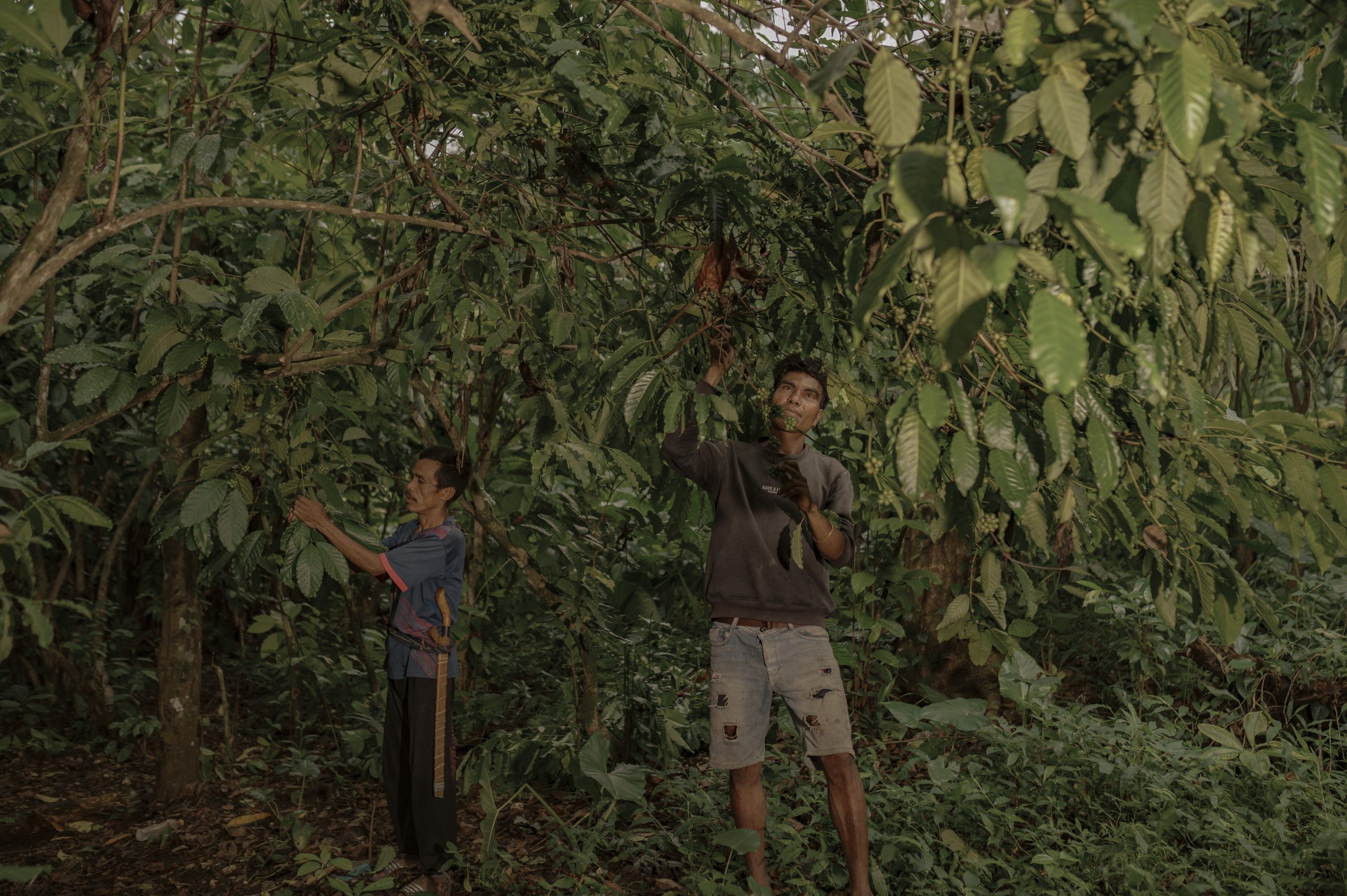
The weed poison is the reason. Pesticides are increasingly used by people for farming. They wash the spray tanks in the river. The most unbearable one is that the poison is mixed into grated coconut, then sprinkled over the river or it is poured directly into the river.
Once the poison is carried by the current, shrimp and fish, both large and small, will float dead. People collect them for consumption. Dominikus Lotakaka confirmed it. “I did that too. Now, I regret it,” he said.
“If I think about it now, the shrimp were poisoned and we ate them. Luckily, no one died.”
Dominikus and his fellow villagers can only imagine the savory and sweet taste of the river shrimp. If they tell their children about it now, none will believe them. “Which means, we have destroyed nature.”
People, then, initiated a village watch. They do not patrol regularly, yet the two big streams in the village are closely monitored. In 2023, someone reported seeing some people in the river. People slowly investigated and found those men picking up floating fish and eels.
People reacted and found out that those men were not from the village. They chased and asked those men to leave. “Now, we agree to protect the river and are determined to restore its biota,” said Oktavianus.
The village administration and the people are currently drafting the Village Regulation to protect the environment, especially the river. “We start from the most visible one, the river. If necessary, we will juxtapose it with the tribal (customary) regulation.”
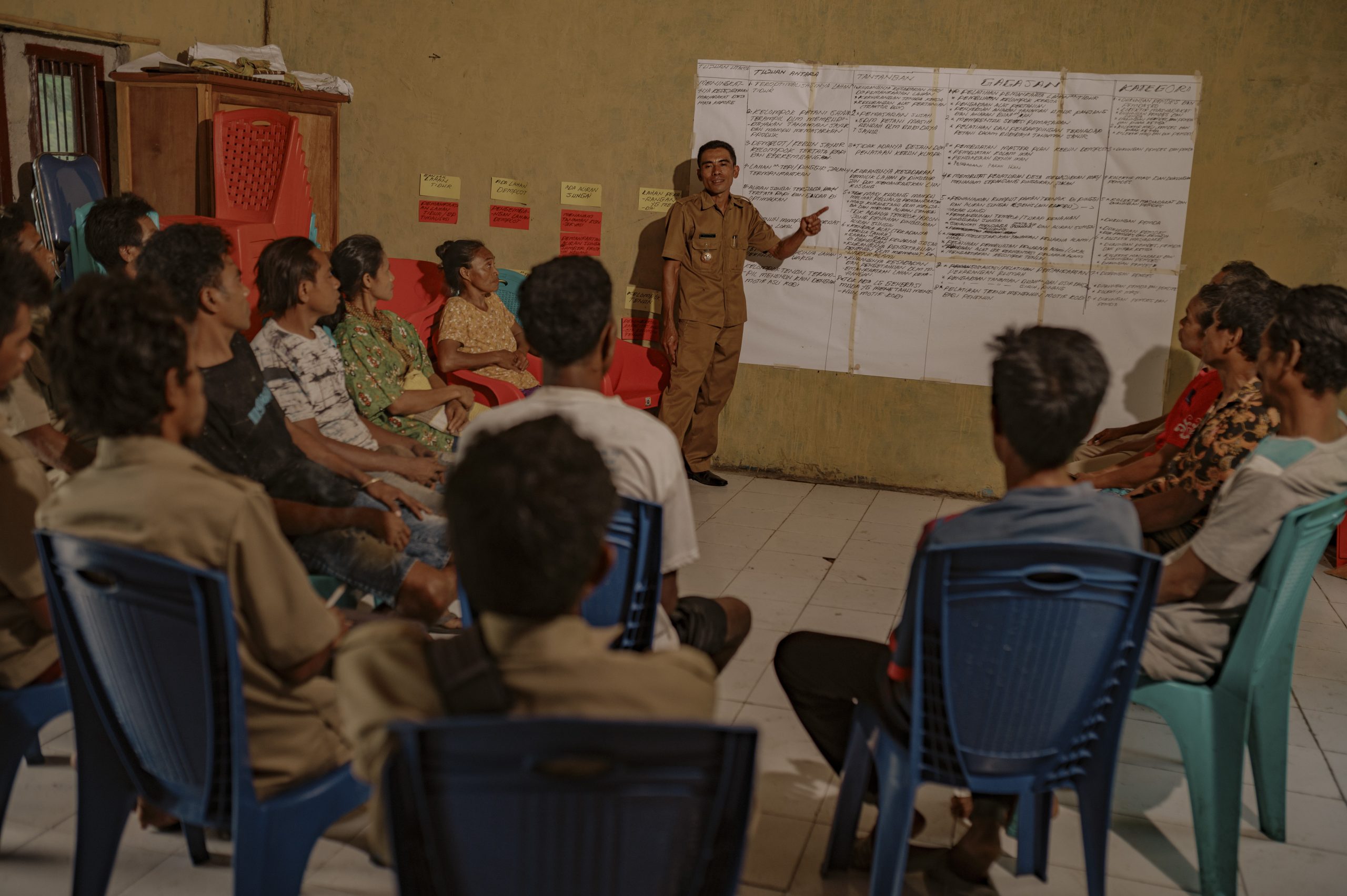
Developing Village Potential
The green and cool nature is such a blessing. Thus, BangKIT, the village administration, and the people developed a freshwater fish farming (aquaculture) business. Through the assistance and joint initiative, the villagers received 2000 catfish seeds, tarpaulin for making ponds, and feed.
Dominikus became the first person willing to develop the aquaculture, despite his daily work as a farmer who cultivates corn, rice, coffee, and cocoa.
He has 5 children and two grandchildren. They live together in a stilt house. He never feels short on anything. In one harvest, his rice field can produce four sacks of rice to meet the food needs.
He is interested in aquaculture and joined the training on how to cultivate fish in ponds. The fish is now 6 months old. Some have enjoyed and tasted the fish. They said it tastes good, savory, and the fish meat is tender.
The information spread quickly. Two other villagers then made a pond. They helped each other digging the ground, sprinkling wood husks on the floor of the pond before covering it with a tarpaulin. Some fish seeds from Dominikus’s pond were moved to another pond. “It’s good if others can do it too. Everyone can eat catfish,” he continued.
Dominikus is not the only person doing the aquaculture now. He can learn and discuss with the other two. They also remind each other to change the pond water twice a week.
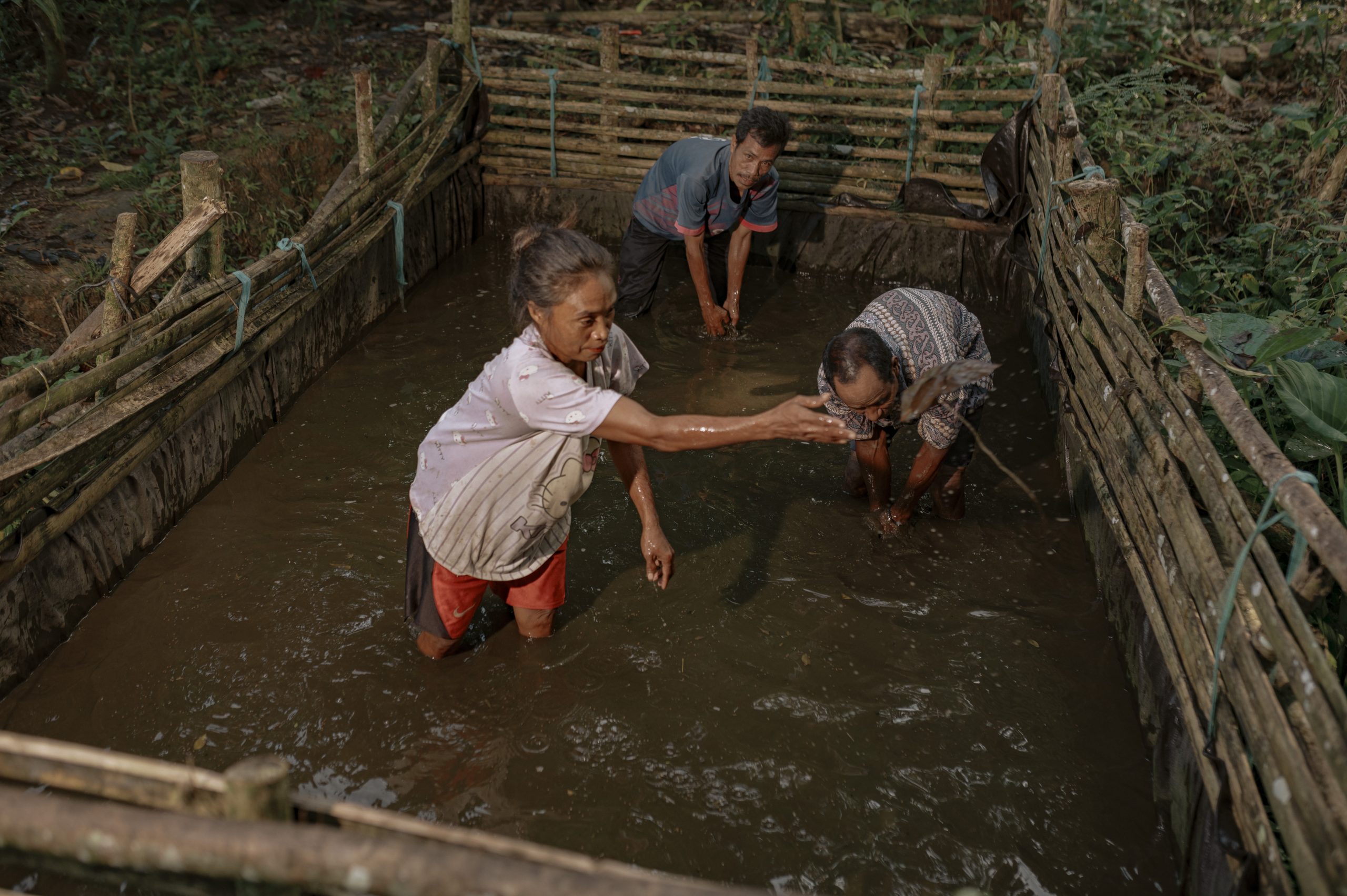
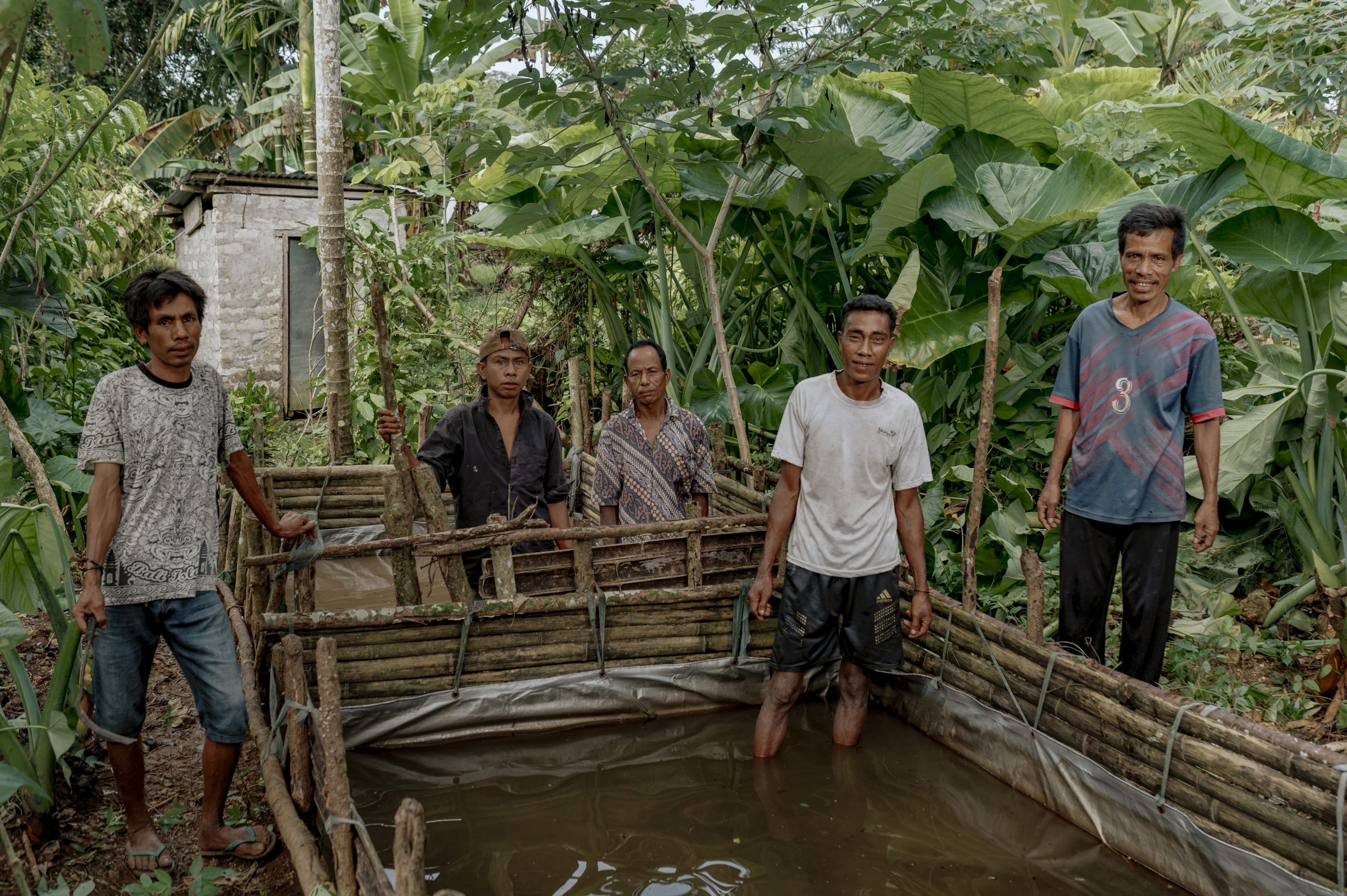
Then, using the village budget, Oktavianus made another pond and bought 2000 snakehead fish seeds. When the fish seeds arrived, people quarantined them in a pond, which was previously a rice field plot.
Some time later, the rain poured heavily for several days in Mata Kapore, inundating the pond and releasing the seeds into the river. “Indeed, we didn’t know that snakehead fish could wriggle and pass through small currents,” said Oktavianus.
“We accepted it. It was a learning process. It was indeed the first time we, in the village, tried to develop aquaculture.”
The escaped snakehead fish is a blessing in disguise to the river. Some snakehead fish are now seen between the rocks in the river. People start seeing hope in their village. Since 2023, the river has been truly maintained. We can see small shrimps too. “If it is well maintained, the river will be normal again,” said Dominikus.
“In the past, during the dry season, we blocked the water with rocks or soil to get fish and shrimps. Then we drained the water, and in less than an hour, the buckets were filled with shrimps and fish. If I cannot experience it again, my children will,” he continued.
